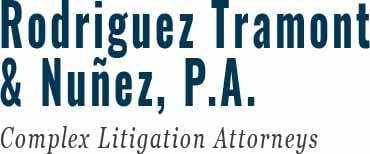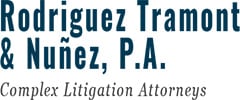Fraudulent Misrepresentation or Omission of Material Facts
The fraudulent misrepresentation or omission of material facts related to investment recommendations made by financial advisors is considered a cause of action for a FINRA securities arbitration claim for damages. The securities fraud claims filed under Section 10(b)(5) of the Securities Exchange Act of 1934, must involve some aspects of fraud, deception, misrepresentation, non-disclosure or omission of material facts related to the purchase or sale of a security.
According to the securities industry anti-fraud regulations, an investor who lost money must prove the investment recommendations made:
- were misrepresentations or omissions of a material fact;
- were intentional, reckless;
- were in connection with the purchase of sale of a security;
- were relied upon by investors; and
- resulted in an investment loss.
An investor must prove that they reasonably relied upon the misrepresentation and as a result of the reliance on the broker’s advice they suffered losses. In the event of an omission or non-disclosure of a material fact, the investor must prove that the broker had a duty to disclose the facts in question.
A securities fraud claim requires an intent on the part of the financial advisor to misrepresent or omit material information to an investor. If the misrepresentation was not intentional a negligence claim is more appropriate. The vast majority of brokerage accounts are considered non-discretionary accounts which require approval by investors of all transactions executed in their accounts. As a result, the information provided by financial advisor is relied upon by investors to make the correct decisions. If the information is incorrect or incomplete investors are at risk and brokerage firms can be held responsible for investment losses. Misrepresentation or omission of a material fact can be made in any of the following situations:
- inadequate due diligence was conducted concerning security
offerings; - failure to disclose of all material risks related to an
investment; - failure to disclose all costs related to transaction;
- forfeiture of any vested benefits from the replacement of a
variable annuity; - unrealistic assumptions for investment projections; and
- inaccurate performance calculations.
Investment losses that can be attributed to a financial advisor’s misrepresentation or omission of a material fact may result in a viable securities arbitration claim for damages. The misrepresentation or omission of a material fact related to an investment recommendation is a FINRA sales practice violation which may result in a viable securities arbitration claim for damages.
You are probably asking yourself whether you have a legitimate claim for damages. You are not sure whether securities fraud was the direct cause of your losses. To consider whether you are the victim of a securities fraud, consider the following FAQs.
Frequently Asked Questions:
Q: How do I determine whether I have a viable Securities Arbitration Claim?
Q: I was advised by my broker to exchange a variable annuity I purchased 3 years ago for one his company offered. He stated that it would not cost me anything at all to make the change. Now, I found out that in fact there are many costs that he did not discuss. What are the costs? Why wasn’t my broker obligated to tell me? What should I do?
In this situation, the broker is obligated to make and you are entitled to a complete disclosure of all relevant information concerning the exchange of variable annuity contracts. Based on your comments, there was a fraudulent misrepresentation and omission of many material facts which indicate that there have been FINRA sales practice violations. Important facts that should have been disclosed include, bonus paid to offset surrender charges, increased surrender charge period and increased annual operating costs to defray the cost of the bonus paid to you. Your situation deserves further consideration, including the performance of your subaccount allocations because the broker is held responsible for any losses subsequent to the exchange or replacement of an annuity contract.
Q: My broker recommended an investment in a private placement Offering that he stated was a secure investment that generated monthly income and was guaranteed by the issuer. About a year after the investment I was informed that the company was a ponzi scheme. What recourse do I have against the brokerage firm?
Private placements are investments for accredited investors who are considered to be relatively sophisticated with a significant net worth and income that allows them to understand and assume the risks associated with the securities Offering. In light of this fact, brokerage firms still make representations concerning the due diligence that was conducted to verify the claims made by the issuer of the private placement which is sold and marketed by the firm. When the revelation of a ponzi scheme is made known to investors, an investigation can determine whether adequate due diligence was conducted.
Q: How do I determine whether I have a viable Securities Arbitration Claim?
Take the Following Steps to Begin the Recovery of Your Investment Losses:
- Contact Our Legal Team to complete a Case Facts Summary
- Schedule a time For an Interview with an Industry Expert
- Gather Critical Case Documents
- Complete Risk Tolerance Assessment
- Assess Account Damages and Financial Advisor Misconduct
- File Statement of Claim for Securities Arbitration

